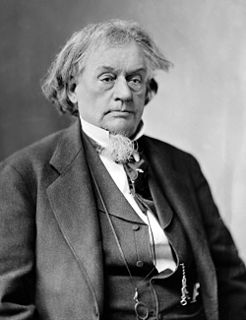A Quote by Jacques Ellul
The will of the world is always a will to death, a will to suicide. We must not accept this suicide, and we must so act that it cannot take place.
Related Quotes
A soldier surrounded by enemies, if he is to cut his way out, needs to combine a strong desire for living with a strange carelessness about dying. He must not merely cling to life, for then he will be a coward, and will not escape. He must not merely wait for death, for then he will be a suicide, and will not escape. He must seek his life in a spirit of furious indifference to it; he must desire life like water and yet drink death like wine.
However great a man's fear of life, suicide remains the courageous act, the clear-headed act of a mathematician. The suicide has judged by the laws of chance - so many odds against one that to live will be more miserable than to die. His sense of mathematics is greater than his sense of survival. But think how a sense of survival must clamor to be heard at the last moment, what excuses it must present of a totally unscientific nature.
If I commit suicide, it will not be to destroy myself, but to put myself back together again. Suicide will be for me only one means of violently reconquering myself, of brutally invading my being, of anticipating the unpredictable approaches of God. By suicide, I reintroduce my design in nature, I shall for the first time give things the shape of my will.
I do not view suicide as wicked, just terribly sad. There is only one death, but it is like a stone cast into a pond - the ripples stretch far. Such an act must leave a burden of sorrow, guilt, shame and confusion on an entire family. A natural death, such as my father suffered, is hard enough to deal with. A decision to end one's life must be still more devastating for those left behind. I cannot imagine the degree of hopelessness someone must feel to contemplate such an act.
...we ask: Why suicide? We search for reasons, causes, and so on.... We follow the course of the life he has now so suddenly terminated as far back as we can. For days we are preoccupied with the question: Why suicide? We recollect details. And yet we must say that everything in the suicide's life- for now we know that all his life he was a suicide, led a suicide's existence- is part of the cause, the reason, for his suicide.
Ah cher ami, how poor in invention men are! They are They always think one commits suicide for a reason. But it's quite possible to commit suicide for two reasons. No, that never occurs to them. So what's the good of dying intentionally, of sacrificing yourself to the idea you want people to have of you? Once you are dead, they will take advantage of it to attribute idiotic or vulgar motives to your action. Martyrs, cher ami, must choose between being forgotten, mocked, or made use of. As for being understood--never!
The most incredible thing is that so much happens outside of the will. You can't will anything. Not even solitude is an act of will. You simply endure it. You must hold on until the very end, without weakening. You can do nothing else. But you must not believe that because you accept being nothing, you are anyone special.
I would you say 25-50 percent is the likelihood that my cause of death will be suicide. Not because I am depressive but because I don't attach any moral baggage to suicide, and I have no religion to hold me back. I think suicide is our right, though I think we need to exercise it with knowledge that it can hurt others. So my assumption is that if I got a fatal disease, I'd end things before I got really sick.
Children are our crop, our fields, our earth. They are birds let loose into darkness. They are errors renewed. Still, they are the only source from which may be drawn a life more successful, more knowing than our own. Somehow they will do one thing, take one step further, they will see the summit. We believe in it, the radiance that streams from the future, from days we will not see. Children must live, must triumph. Children must die; that is an idea we cannot accept.
As a Buddhist, I view death as a normal process, a reality that I accept will occur as long as I remain in this earthly existence. Knowing that I cannot escape it, I see no point in worrying about it. I tend to think of death as being like changing your clothes when they are old and worn out, rather than as some final end. Yet death is unpredictable: We do not know when or how it will take place. So it is only sensible to take certain precautions before it actually happens.








































